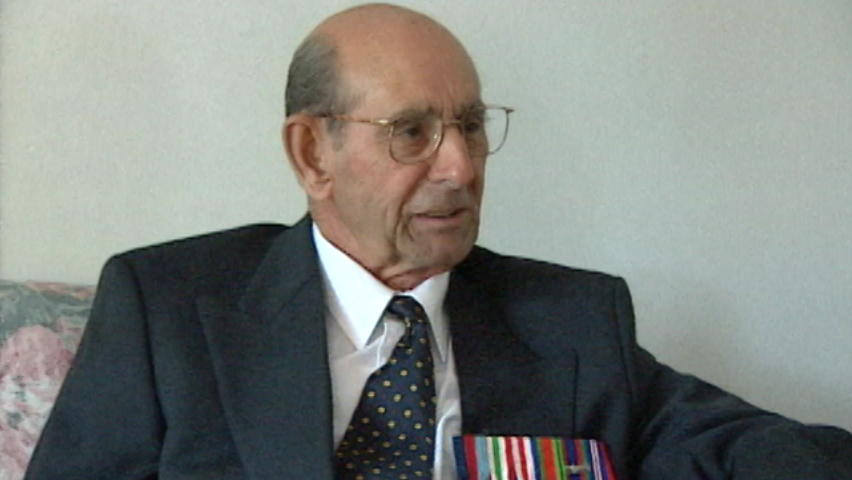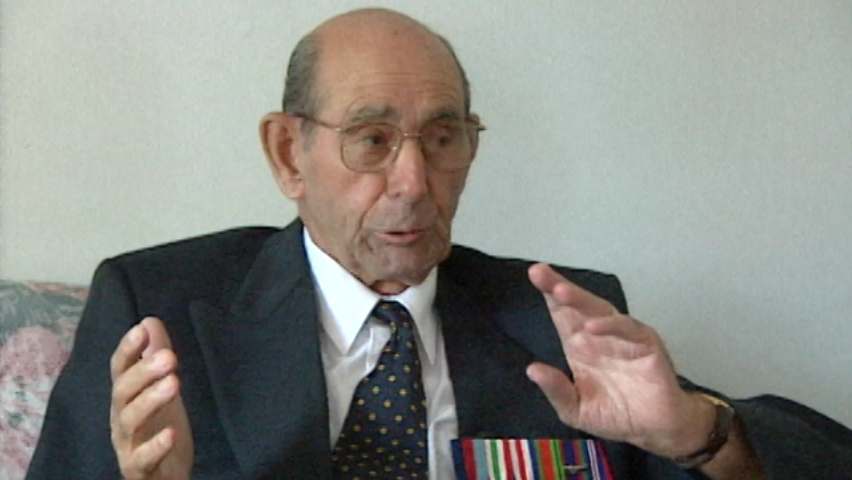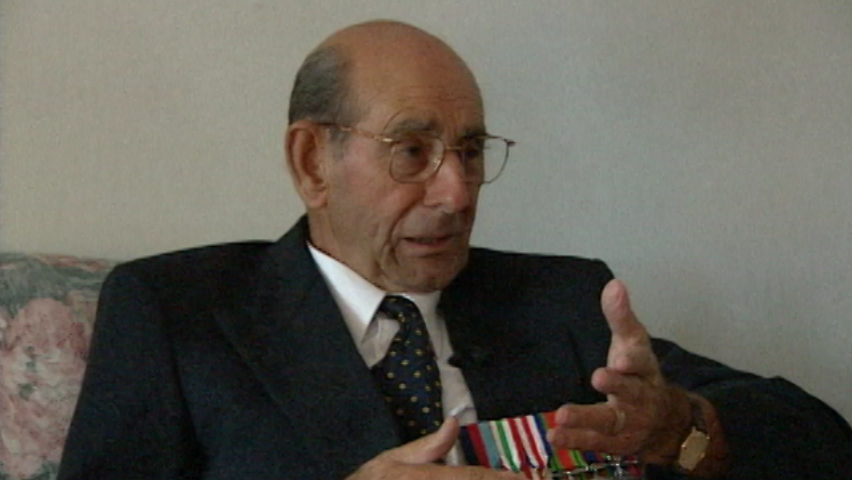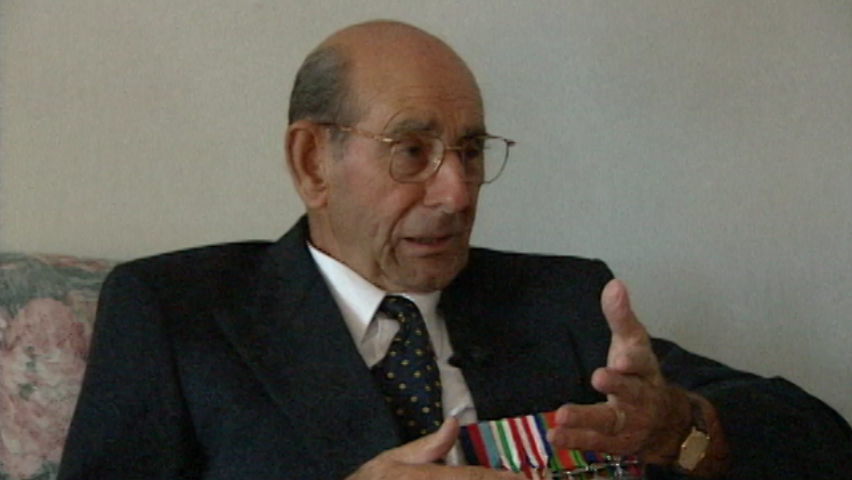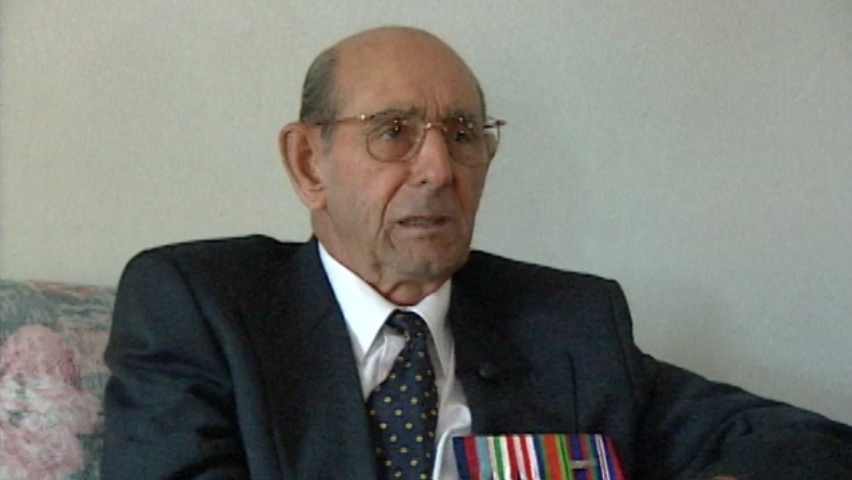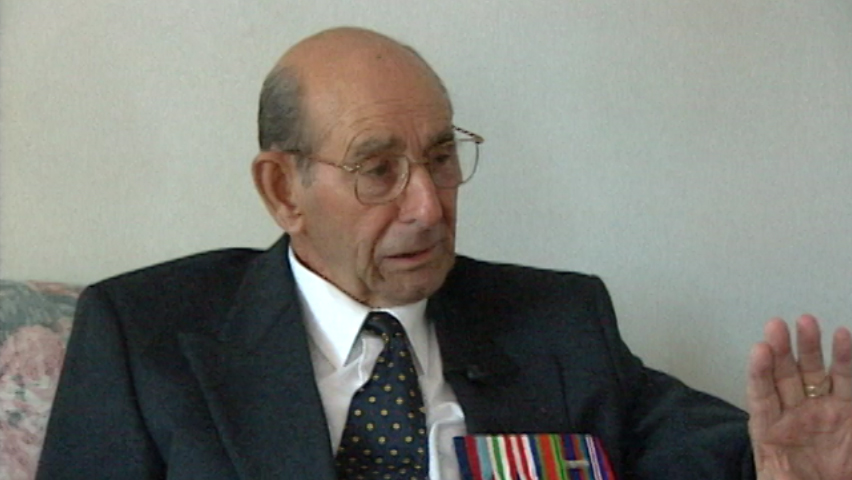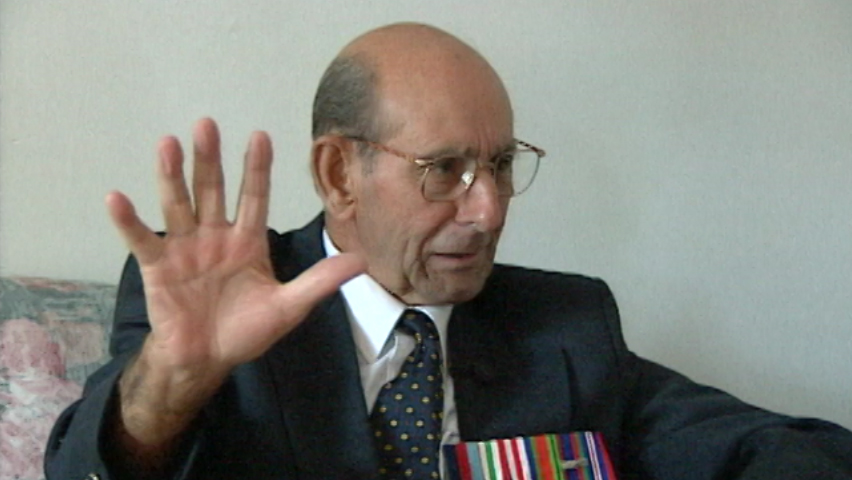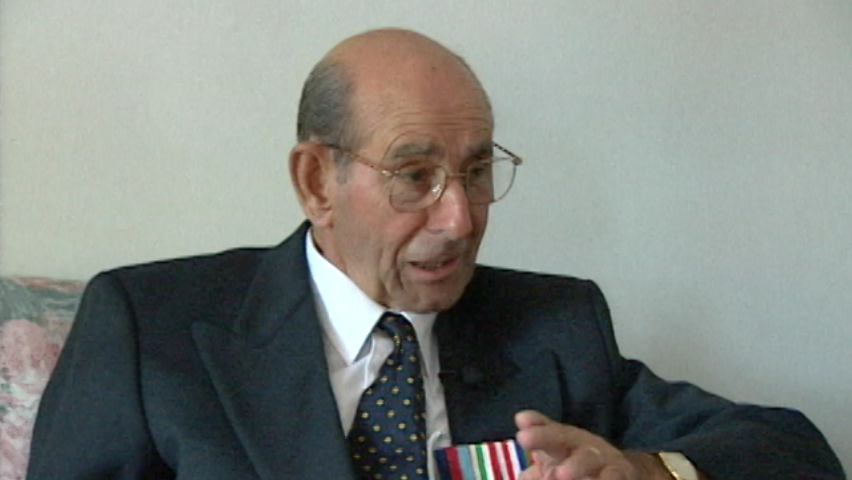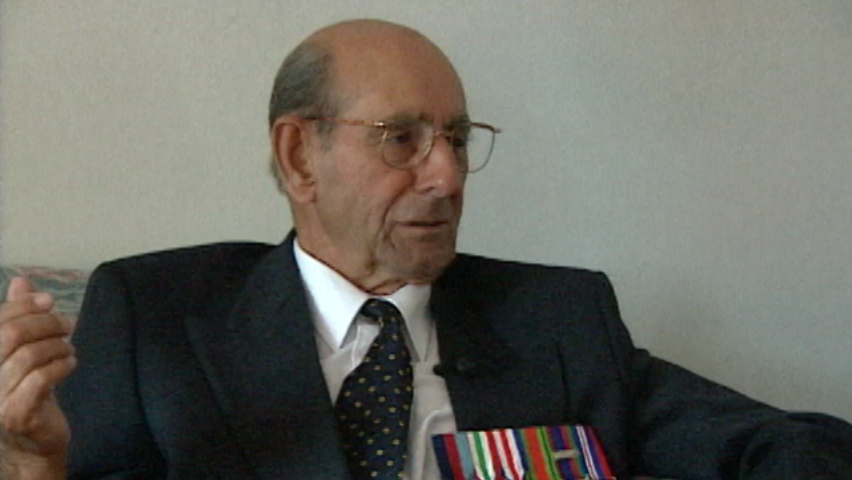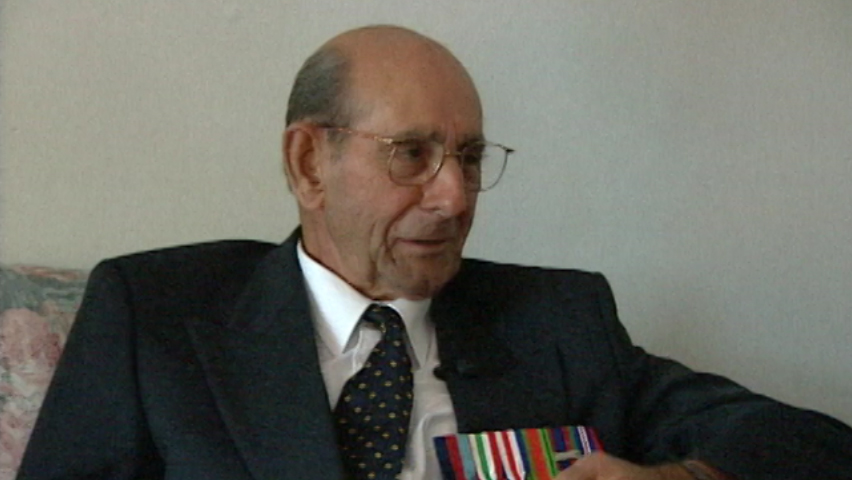Luck of the Draw – Fighting Patrols
Heroes Remember
Luck of the Draw – Fighting Patrols
Transcript
Description
Mr. Clavel describes going on a fighting patrol across the Sangro River in order to assess the German strength and seeing nothing. Held back because of an infection, he's unable to join another patrol from which only two of the original sixteen men return.
Roger Clavel
Roger Clavel was born in Sainte-Scholastique, Quebec on February 15, 1919. He was the sixth of eight children. After finishing grade eight, he sold donuts door-to-door. Mr. Clavel enlisted three days after the war started, on September 13, 1939. He went overseas as a Fusilier de Montreal, and while in England he was married. Mr. Clavel then joined the Royal 22nd Regiment in North Africa. During the Italian campaign, Mr. Clavel eventually ended up driving a medical supply truck. The Royal 22nd Regiment then rejoined the Canadian army in Belgium, but Mr. Clavel saw limited action. After returning to Canada, Mr. Clavel had to wait exactly one year for the arrival of his war bride.
Meta Data
- Medium:
- Video
- Owner:
- Veterans Affairs Canada
- Duration:
- 3:19
- Person Interviewed:
- Roger Clavel
- War, Conflict or Mission:
- Second World War
- Battle/Campaign:
- Italian
- Branch:
- Army
- Units/Ship:
- Royal 22e Régiment
- Rank:
- Sergeant
- Occupation:
- Truck driver
Related Videos
- Date modified:



